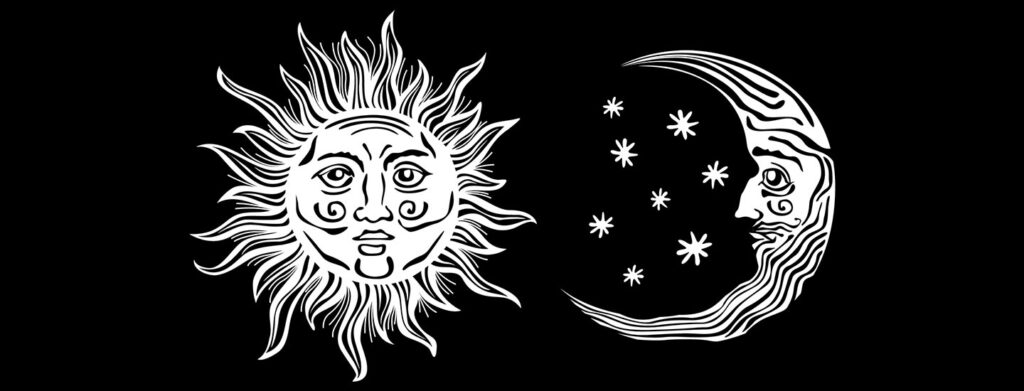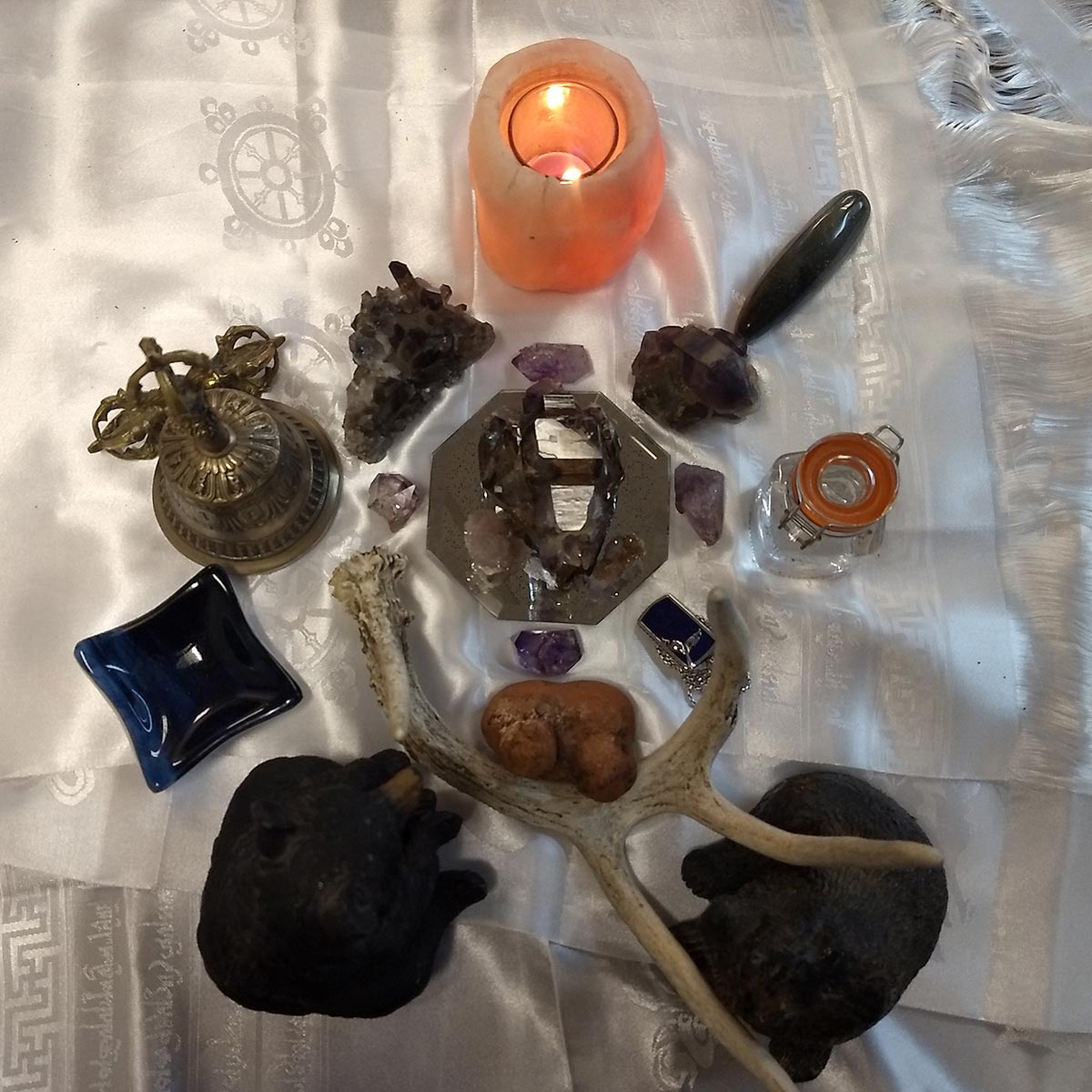Welcome to the fascinating world of astrology. As an avid student and practitioner of this ancient wisdom, I encourage you to consider the use of astrology in your life. The stars and planets, after all, have been our guides for centuries. They’ve been used to navigate their way across vast oceans, to plant crops, and to understand the cycles of our very existence.
Contents
But how do you find proof of its effectiveness? Well, you’re about to embark on a journey that will reveal the answers. For starters, it’s essential to understand that evidence of astrology’s influence is not always tangible or quantifiable in a way that traditional science demands. Instead, it manifests as patterns and synchronicities in our lives, as whispers of understanding that resonate with our deepest selves. In my years of practicing astrology, I’ve found that its most compelling proof lies in its capacity to illuminate the paths we tread on this grand cosmic stage.
“Astrology is a language. If you understand this language, the sky speaks to you.” – Dane Rudhyar
As we delve deeper into this article, you’ll find a wealth of knowledge to help you tune in to this celestial language. We’ll explore how astrology can work in different areas of your life, from personal growth and relationships to career decisions and spiritual development.
What is Astrology and Why is it Important?
At its core, astrology is a complex system of methodologies employed to interpret the correlations between celestial bodies and human affairs (known as astrological phenomena). It’s a practice that dates back to ancient civilizations, employed as a means of predicting seasonal shifts, deciphering celestial cycles as signs of divine communications, and determining the effectiveness of politcal and war campaigns.
Why is astrology important, you might ask? Well, in our ever-evolving, fast-paced world filled with uncertainties, astrology serves as a guiding tool, providing a sense of direction and purpose. It offers an alternative perspective on life’s challenges and opportunities, thereby enabling individuals to make informed decisions and chart a course towards personal growth and fulfillment. Astrology, in my belief, is not a deterministic doctrine dictating our fate but rather a profound tool allowing us to better understand ourselves and the world around us.
It’s important to note that despite enduring skepticism and scientific bias, astrology continues to hold sway over a significant section of the population. The dismissal of astrology as pseudoscience arises mainly from misconceptions and lack of understanding. In reality, astrology is a complex discipline that requires deep knowledge of astronomy, mythology, and psychology.
“Astrology is assured of recognition from psychology, without further restrictions, because astrology represents the summation of all the psychological knowledge of antiquity.” -C.G. Jung, Swiss psychiatrist and psychoanalyst who founded analytical psychology.
Overcoming Scientific Bias Against Astrology
An important step in overcoming scientific bias is to approach astrology not as a science but as a symbolic language, a form of art that allows us to tune into the cosmic rhythms and anchor ourselves amid life’s vicissitudes. It’s also crucial to recognize that while the scientific method and empirical evidence are vital to understanding our physical world, they are not the only means of gaining knowledge and insight.
Our collective understanding of the universe is enriched by scientific discoveries, philosophical debates, and the mystical wisdom of ancient traditions like astrology. In this context, astrology represents a bridge between science and spirituality, between the material and the metaphysical. Hence, the scientific bias against astrology can be mitigated by cultivating a holistic worldview that encompasses both the physical and the metaphysical realms.
Embracing astrology doesn’t mean rejecting science. On the contrary, it can complement our scientific understanding, providing a rich tapestry of symbolic interpretations that shed light on our inner world and personal experiences. It’s about reconciling the rational with the intuitive, the visible with the invisible, the measurable with the immeasurable.
So, what can astrology do for you? I invite you to delve deeper and explore its transformative potential in different areas of your life. Whether you seek guidance in relationships, career, personal growth, or spiritual development, astrology can provide valuable insights and perspectives to guide your journey.
The Role of Astrology in Personal Development
It’s a common misconception that astrology is merely a tool to predict the future (a notion that has drawn much scientific skepticism). This couldn’t be further from the truth. Astrology, at its core, is a profound system designed to foster self-awareness and personal growth. It’s a guide to understanding oneself, and therefore can be an instrumental tool in personal development.
Let me explain in more detail. When we delve into astrology, we begin to understand our birth chart. This is a snapshot of the sky at the time of our birth, indicating the positions of the planets. These planetary positions, in relation to each other and the twelve astrological houses, delineate our inherent tendencies, strengths, weaknesses, and potential life challenges. By interpreting this celestial map, we can gain profound insights into our personality and life purpose.
The Power of Self-Knowledge
Self-knowledge is, unquestionably, the cornerstone of personal development. Astrology, with its insightful and nuanced perspectives on our innate characteristics, provides a framework for such self-knowledge. It allows us to reflect on our strengths (Mars for courage, Venus for love and beauty, Mercury for communication) and challenges (Saturn for discipline and limitations, Pluto for transformation).
“Astrology compels us to understand and accept ourselves as we are, rather than as we wish we could be. It helps us realize that our potential isn’t a fixed entity, but a dynamic, evolving process that we can influence.”
Planetary Cycles and Personal Growth
Another key facet of astrology in personal development lies in the understanding of planetary cycles. Everything in the universe operates on cycles, and humans are no exception. Life is an ebb and flow of experiences and emotions, often shaped by these planetary cycles (notably the Saturn Return, which occurs every 29.5 years). By recognizing these cycles, we can better navigate life’s tumultuous waters, making informed decisions and proactively addressing challenges.
But how does this work? Simple. When we are aware of these cycles and their potential influence, we can align our actions (or reactions) accordingly. For example, during a Mercury Retrograde (a three-week period when Mercury appears to move backward), communication may be more challenging. Knowing this, we can be more mindful of our words and how we express ourselves.
“We don’t control these cycles (we can’t make Mercury stop retrograding), but we can control our responses. We can use the knowledge of these cycles to foster personal growth and development.”
Using Astrology for Goal Setting and Decision Making
Astrology can also play a significant role in goal setting and decision making. With an understanding of our astrological blueprint (our strengths, tendencies, and challenges), we can set goals that align with our true selves. We can make decisions that are in harmony with our core values and aspirations, thus leading to a more fulfilling life.
Perhaps you have a strong Jupiter placement (Jupiter rules expansion and growth) in your chart. You might harness this energy to pursue further education or travel. Conversely, a prominent Saturn might urge you to establish structure and discipline in your life.
Astrology isn’t a deterministic system that sets our fate in stone. It’s a tool, a guide, a mirror reflecting back our deepest selves. By shedding light on our inherent characteristics and life cycles, astrology empowers us for personal growth and development. It’s time we looked beyond the scientific skepticism and harnessed the transformative power of this ancient wisdom.
How to Use Astrology for Career Guidance
As a practitioner of astrology for many years, I’ve discovered that our celestial guides can be instrumental in navigating our professional path. Astrology, if used correctly, can provide valuable insights into our careers and the decisions we make within them. Despite the skepticism from the scientific community, astrology’s influence on career guidance is worth exploring.
So, how exactly can the stars aid in our career guidance? Let’s delve deeper.
Identifying Strengths and Weaknesses
Each zodiac sign is unique, characterized by distinct traits and tendencies. By understanding the placements of your planets and the signs and houses they’re in, you can gain insights into your strengths (areas where you naturally excel) and weaknesses (areas where you might need improvement or support). This information can guide you in choosing a career that aligns with your core competencies and interests.
Understanding Personality Type
Believe it or not, your astrological sign can provide a deep understanding of your personality. Whether you’re a fiercely independent Aries, a detail-oriented Virgo, or a compassionate Pisces, these inherent traits can shape your professional persona. Understanding these facets of your personality can help you identify careers that pair well with your disposition.
Aligning with the Astrological Cycles
As we journey through life, the celestial ballet of the planets and their intricate dance with the stars may have profound implications on our life paths, particularly in the realm of our careers. At times unseen, but constantly felt, these cosmic forces might just be the guideposts you’ve been seeking. For example, the phenomenon known as Mercury Retrograde, where the swift planet appears to reverse its orbital course, is colloquially linked to a flurry of miscommunications and technological hiccups. Understanding and aligning with these astrological cycles may empower you to chart your career path with greater foresight, sidestepping potential stumbling blocks.
Astrological Cycles and Career Planning
Being cognizant of these astrological cycles can not only enhance your strategic planning but also equip you with the wisdom to weather any storm. They offer a kind of cosmic ‘weather forecast’, alerting you to potential challenges and windows of opportunity. Here’s a brief glimpse into how these cycles might influence your career:
- Mercury Retrograde: This period calls for introspection and review. It’s a time to pause, reflect on your career trajectory, and correct course if necessary.
- Venus Cycle: As the planet of love and money, Venus can highlight periods of financial growth or strain in your career.
- Full Moon: This phase symbolizes culmination and is often a time of completion or realization in your career.
“Astrology is like a map. Like a roadmap, astrology is meant to be a useful tool to help guide you to wherever you want to go.”
~Pema Chödrön
It’s important to remember that astrology should not dictate your career decisions, but rather provide perspective and additional insights. Each of us has the power of free will to make decisions that best serve our career aspirations. Astrology is a tool that, when used wisely, can provide valuable guidance on our professional journey.
For a more in-depth look at Astrology with career and business, read “The Need for Spirituality in Business.”
The Science and Symbolism of Astrology
Now, let’s take a moment to address the lurking skepticism: the scientific bias against astrology. Despite its age-old roots and global practice, astrology frequently encounters a wave of contention due to its perceived lack of empirical evidence. Yet, it’s essential to remember that astrology isn’t science in a conventional sense.
Astrology is a symbolic language, a system brimming with archetypes, and a profound instrument for self-reflection. With the advent of time, both the realms of science and astrology have witnessed an expansive evolution. Their growth, often regarded as parallel, intertwines intricately, bearing profound influences upon humanity. While science, a discipline grounded in empirical evidence and logical reasoning, has unfolded mysteries of the physical world, astrology, an ancient practice, has continually drawn insights from the celestial sphere, offering individuals a unique lens to perceive their existence and influence in the world.
“Science and astrology are like two sides of the same coin. While science demystifies the tangible world, astrology provides a symbolic narrative to the intangible aspects of life. They are both different pathways leading to the same destination – understanding and interpreting the universe and our place in it.”
The Ever Evolving Science
Science, in its very nature, is ever-evolving. What was once considered an absolute truth may be proven otherwise with newer discoveries and advancements. For instance, we are hardly able to fathom the depths of human consciousness. Even after centuries of scientific exploration, consciousness remains an enigma, a concept that we know exists but are still grappling to understand. But does this uncertainty make it any less impactful? Does it rob us of our experiences, thoughts, or emotions? Certainly not! Just as we accept the inexplicable nature of consciousness and its profound impact on our lives, can’t we embrace the wisdom and insights astrology has to offer?
- Science – Continuous evolution, grounded in empirical evidence and logical reasoning, explores the physical world.
- Astrology – An ancient practice, derives wisdom from the celestial sphere, offers a unique perspective to our existence.
- Consciousness – A mystifying concept, yet to be fully unraveled by science, but has a deep-rooted impact on our experiences.
Complimentary Relations
Both science and astrology have an exquisite role in our lives. They complement each other, providing a comprehensive understanding of our existence and the universe. While science expands our knowledge and understanding of the physical world, astrology lends insights into the realms beyond immediate perception, contributing to personal growth and self-understanding.
| Dimension | Science | Astrology |
|---|---|---|
| Focus | Physical World | Celestial Insights |
| Evolution | Ever-evolving | Ancient and Continuous |
| Role | Understanding the tangible world | Understanding the intangible aspects of life |
Let us not discount astrology simply because it stands beyond the conventional realm of science. Instead, let’s welcome it as a companion to science, a tool that helps us navigate the celestial influences and discover our true selves in this vast cosmos.
Instead of seeking to debunk or substantiate it with scientific principles, one might find greater value in embracing astrology’s core essence – as a mirror to our inner selves, and as a compass guiding us through the labyrinth of life’s decisions, including our career paths.
Astrology and Health: How Your Sign Affects Your Well-being
As an ardent believer in the power of the stars, I find it fascinating to explore how our astrological signs can influence our health and overall well-being. The ancient practice of astrology, despite facing criticism from mainstream science, remains a valuable tool for self-understanding, prediction, and personal growth.
Each astrological sign, governed by its ruling planet(s), embodies a unique set of characteristics and tendencies. These influences extend beyond personality traits and can manifest in our physical health, predisposing us to certain ailments or health challenges. Just as our bodies are a microcosm of the universe, these celestial energies can predispose us to specific health concerns. These are not deterministic, but act as guidelines to help us understand our bodies better and take proactive steps towards health and wellness.
Medical Challenge Examples
Aries (March 21 – April 19)
As a fiery, cardinal sign, Aries can be susceptible to headaches, migraines, and issues related to the brain and face. Regular exercise (a good match for their active disposition) and stress management techniques can mitigate these predispositions.
Taurus (April 20 – May 20)
Taurus, an earth sign ruled by Venus, may experience issues related to the throat and neck. Regular vocal rest and a good diet can help Taureans maintain their vocal health.
Gemini (May 21 – June 20)
With Mercury as its ruling planet, Gemini may encounter issues related to the lungs, arms, and hands. Regular respiratory exercises and hand stretches can be beneficial for these agile conversationalists.
Cancer (June 21 – July 22)
Water sign Cancer is often associated with digestive and stomach issues. Balanced diets and mindfulness can significantly improve their digestive health.
It’s important to note that astrological signs are just one part of the whole astrological picture. Other elements such as the rising sign (the sign that was on the eastern horizon at the time of birth) and the moon sign (the sign where the moon was when one was born) also play significant roles. Astrology is a guide, not a prescription, and it is always recommended to consult with a healthcare professional for any health concerns.
To the skeptics who question the relevance of astrology in health, it is worth mentioning that astrology was the precursor to modern medicine. It was the early physicians who studied the stars and planets, looking for correlations between celestial movements and disease patterns. The goal of this knowledge was to prevent and cure illness, and its application today can still be invaluable.
Astrology and Spirituality: Finding Meaning and Purpose
When it comes to the intersection of astrology and spirituality, it’s important to understand that these two arenas are not mutually exclusive. In fact, they often overlap, creating a unique harmony that can help us find both meaning and purpose in our lives. Astrology, an ancient practice that studies the movements and relative positions of celestial bodies, can provide us with insights about our character, personality traits, and even our destinies. Spirituality, on the other hand, is about searching for a sense of purpose, seeking answers to existential questions and striving for an inner peace.
The integration of astrology into our spiritual journey can offer us a personalized roadmap to self-discovery. It allows us to understand ourselves better (our strengths, weaknesses, desires, and fears), thereby guiding us in making conscious decisions that align with our highest selves. Let me explain how.
Understanding Our Natal Chart
The natal chart, also known as the birth chart, is the cornerstone of astrology. It’s a snapshot of the sky at the exact moment of our birth, and it holds significant information about our potential and life’s purpose. By understanding our natal chart, we can gain insights into our deepest desires, talents, challenges, and opportunities. This understanding can then be incorporated into our spiritual practice, enabling us to work with our natural abilities and overcome our inherent challenges.
Aligning with Cosmic Energies
Astrology encourages us to align with the cosmic energies that surround us. Different planets and their positions impact us in various ways, influencing our moods, actions, and experiences. By acknowledging these influences, we can work in harmony with the universe, rather than against it. This alignment not only brings a sense of peace and balance but also fosters personal growth and spiritual development.
Guiding Our Spiritual Journey
With the insightful guidance that astrology provides, we can navigate our spiritual journey with more confidence and clarity. It can help us understand the timing of events (why things happen when they do) and shed light on our relationships, career, and life path. By integrating astrology into our spirituality, we can learn to trust the journey, knowing that we are in tune with the cosmos and moving in the right direction.
More importantly, astrology can be used to understand your soul’s purpose. From past life experiences affecting this life, to current endeavors of the soul to experience in this life, astrology can undercover the most fundamental paths your life will take and help you make the choices that will be most fulfilling for you.
Astrology and Personality: Is there a Connection?
Delving into the cosmic realm, I invite you to consider the fascinating connection between astrology and personality. Many of us are familiar with zodiac signs, having glanced at horoscopes in a moment of curiosity or leisure. Yet, there’s a whole other layer to astrology, one that probes deeper into our personalities, revealing intricate patterns and illuminating paths less tread.
The relationship between astrology and personality is anchored by the premise that celestial bodies, at the time of our birth, wield a significant influence over our characteristics, behaviors, and life trajectories. It’s a concept that, while met with skepticism by some, continues to captivate the curiosity of millions around the globe.
The Zodiac and Personality Characteristics
When we think of astrology, the twelve signs of the zodiac often spring to mind. Each sign, governed by a specific celestial body, imparts certain personality traits to those born under its rule. Aries, influenced by Mars, are typically known for their assertiveness and pioneering spirit. Contrastingly, a Venus-ruled Taurus might exhibit steadfastness and a love for comfort and luxury.
While these descriptions are generalized, remember that astrology is complex; the complete natal chart, with its myriad of celestial interplays, paints a far richer and more nuanced picture of our personalities.
Planetary Influences
Delving further into the astrological blueprint, each planet plays a pivotal role in shaping our personalities. The Sun and Moon, for instance, represent our core self and emotions, respectively, while Mercury influences our mind and communication style. These planetary energies, combined with the sign they occupy at the time of our birth, contribute to our unique personality matrix.
The influence of Venus’ position on a woman helps to determine her style of femininity while the Mars position of a man denotes his style of masculinity. The Moon’s position can greatly impact a man’s personality depending on whether it’s in a more masculine or feminine sign.
The Astrological Chart: What it is and How it Works
A natal chart, in essence, is a mathematical and geometric representation of the heavens at the exact moment of an individual’s birth. This intricate diagram provides a snapshot of the cosmos, detailing the positions of the planets, the sun, the moon, and even asteroids and fixed stars in various astrological signs and houses. It is these positions and relationships which astrologers interpret, drawing forth insights about a person’s character, potentials, and life themes.
The Components of an Astrological Chart
An astrological chart is composed of several key elements, each with its own significance. To begin with, the chart is divided into twelve sections or ‘houses’, each representing a specific life area (such as career, relationships, or personal growth). The placement of planets in these houses provides insight into how an individual may approach or experience these areas of life.
The chart also includes the ‘planets’, which in astrological terms includes the sun, moon, and the traditional astrological planets (Mercury, Venus, Mars, Jupiter, Saturn) along with Uranus, Neptune and Pluto. The sun represents the core self, the moon reflects emotional nature, and each planet symbolizes different facets of the personality and life experience.
Lastly, the chart showcases the twelve signs of the zodiac, from Aries through to Pisces. Whichever sign each planet is in at the time of birth can influence how the characteristics and energies of that planet are expressed in an individual’s life. For instance, Mars in Aries might indicate a person with assertive, proactive energy, whereas Mars in Pisces might suggest a more passive, introspective approach to asserting oneself.
Creating and Reading an Astrological Chart
Creating an astrological chart requires exact birth data – specifically, the date, time, and place of birth. With this information, astrologers can calculate the precise positions of the planets and other celestial bodies at the moment of birth, and plot these onto the chart. It’s worth noting that the accuracy of a chart (and any interpretations derived from it) depends heavily on the precision of this birth data.
Reading an astrological chart, meanwhile, is an art that requires years of study and practice. Astrologers not only consider the positions of the planets, signs, and houses individually, but also their relationships to each other – known as ‘aspects’. These aspects (like conjunctions, oppositions, or trines) can greatly modify the expression of a planet’s energy.
Note: While creating and reading an astrological chart can seem intimidating to the uninitiated, numerous resources and software exist to assist with the process. However, a nuanced, accurate interpretation typically requires the expertise of a skilled astrologer.
Now that we’ve touched on the basics of astrology and its potential benefits, let’s delve deeper into the fascinating world of different astrological schools. Each of these schools approaches chart interpretation in unique ways, offering fresh perspectives and insights.
1. Traditional Astrology
Traditional Astrology, often referred to as Classical or Hellenistic Astrology, has its roots in ancient Greece and the Middle East. This school of thought emphasizes fixed stars, lots, and planetary sects.
2. Evolutionary Astrology
Evolutionary Astrology, on the other hand, is deeply focused on the soul’s evolutionary journey. By studying karmic patterns, this school aims to aid personal growth and spiritual evolution.
3. Vedic Astrology
Also known as Jyotish or Hindu Astrology, Vedic Astrology is a time-tested school that originated in India. This method uses the Sidereal Zodiac, which takes into account the movement of the Earth’s axis.
4. Psychological Astrology
A comparatively modern school, Psychological Astrology intertwines astrology with depth psychology to explore the depths of the human psyche and the unconscious mind.
5. Synastry Astrology
Synastry Astrology shines in relationship analysis, studying the interaction between two individual’s charts to reveal compatibility and potential areas of conflict.
6. Shamanic Astrology
Shamanic Astrology, now called “Turning of the Ages” is an Earth-centered approach to our relationship to the unaided witnessing of the night sky and its impact on our mythos. It focuses on great cycles that influence our ceremonies and impact our psyche and its archetypal influenced patterns. These span not only the current lifetime but previous lives most impacting this lifetime, as well the collective of human, including and not limited to the history of civilizations.
Remember: Each school has its unique strengths and focus areas. Your choice of school should align with what you seek from astrology—to gain spiritual insights, to understand your psychological patterns, or to unravel the dynamics of your relationships.
How about we take a closer look at these schools? Here’s a simplified comparison table:
| School of Astrology | Main Focus | Key Feature |
|---|---|---|
| Traditional | Fixed stars, lots, planetary sects | Rooted in ancient Greece and the Middle East |
| Evolutionary | Soul’s evolutionary journey | Focuses on karmic patterns and spiritual evolution |
| Vedic | Sidereal Zodiac | Originated in India, considers the movement of the Earth’s axis |
| Psychological | Human psyche and the unconscious mind | Combines astrology with depth psychology |
| Synastry | Relationship analysis | Studies the interaction between two individual’s charts |
| Shamanic | Evolutionary cycles and archetypes | Studies the soul’s purpose, relationships, and planetary cycles. |
Each of these schools provides a rich, insightful avenue for chart interpretation. Understanding their methods and focus areas can help you align your astrological journey with your personal needs and spiritual goals.
I use Shamanic Astrology to do my Soul’s Purpose Astrology Readings because I find it incredibly accurate and pertinent. If you’re interested in exploring a reading, contact me. I especially like using these readings before Coaching because it removes a LOT of guess work about what someone should be focusing on in their lives, and what mostly gets in their way of achieving their goals.
Astrology and Relationships: Can it Predict Compatibility?
As we delve deeper into the fascinating world of astrology, a pressing question emerges: Can astrology accurately predict compatibility? As an astrologer, I have spent countless hours examining this query. What I’ve found is that, much like many aspects of astrology, the answer isn’t exactly black and white.
For centuries, astrologers have used natal charts (a map of where all the planets were in their journey around the Sun at the exact moment of your birth) to determine personality traits and, by extension, compatibility between individuals. This practice, known as synastry, involves comparing the natal charts of two individuals and analyzing the aspects (specific angles) between their planets.
The underlying premise here is that certain planetary aspects foster harmony, while others might lead to conflict. For instance, Venus (the planet of love) in harmonious aspect with Mars (the planet of passion) in another person’s chart could suggest a strong romantic connection. But, on the other hand, if your Mars is in a challenging aspect to another person’s Pluto (the planet of power and transformation), this could spell power struggles in a relationship.
Predicting Compatibility
Does this mean that astrology can, with certainty, predict compatibility? Not exactly. What it does point to is that two people who come together in a relationship, whether that be for intimacy, friendship or business have impacts on each other’s personal growth. Generally speaking, we attract to us what is in the most need of healing, revealing, or evolving. These are opportunities of personal growth that when embarked upon with understanding, can be highly beneficial, if even only for a short period of time.
As far as compatibility, we might say that if we seek a non-confronting, easy to be with, full of love and love-making relationship, a compatibility chart can determine whether this is immediately possible. However, if compatibility is that each person may be a catalyst for the other’s personal growth, the chart will reveal areas in which these catalysts may show up.
Moreover, astrology emphasizes the concept of free will. Just because two people have challenging aspects in their synastry doesn’t doom them to a problematic relationship. They have the power to choose their actions, and understanding their astrological compatibility can actually serve as a tool for personal and relational growth. The outcomes and willingness to participate in the relationship to its fullest is imperative for each person to act on. The chart will not predict or determine that willingness.
More on Relationships
Using astrology before relationship counseling and coaching is like having a guidebook before embarking on a journey. It explains the dynamics of the relationship and reveals the reasons why two people may come together in the first place for their personal development. Consider having a compatibility or synastry chart done up front. It could save you a lot of time and money.
Contact Sean Imler for a consultation.
Also, if you’re looking for more understanding about relationship dynamics, consider the following articles:
- Is Your Relationship Worth Saving?: A Guide to Figuring It Out
- Reviving Your Relationship With Love, Respect and Trust
- Unusual Intimate Relationships: One Size Does Not Fit All
Key Takeaways
- Astrology, through the practice of synastry, can provide insights into the compatibility between individuals.
- Despite these insights, astrology is not a definitive guide to compatibility due to the complexity of human experience and the influence of individual values and personal growth.
- Understanding astrological compatibility can serve as a tool for personal and relational growth rather than a predetermined fate.
Astrology can provide valuable insights and guidance, but it’s not the ultimate determinant of relationship success. As always, the power lies with you, the individual, in how you choose to use this information and navigate your relationships.
In Conclusion
You may also like to read, “Can Astrology Predict and Divine Our Destiny?“
For an interesting look at skepticism and astrology, read, “Believe In Astrology? Why or Why Not?“
If you’re a business owner, you definitely want to read, “Better Customers, Wiser Business Growth With Astrology.”
If you’re interested in pursuing an astrological chart, contact Sean Imler for a consultation.











